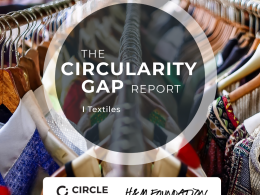A growing number of US companies have increased their reporting on environmental, social, and governance (ESG) matters in recent years, even as conservative politicians continue to push back against such disclosures, according to data reviewed by Reuters. Analysts attribute this trend to heightened investor and regulatory focus on ESG issues amid global warming and changing workforce demographics.
While some companies have scaled back ESG efforts, such as reducing ties with climate initiatives or LGBTQ+ advocacy groups, data indicates broader adoption of ESG transparency. For example, the share of S&P 500 companies disclosing workforce data by race and gender rose to 82.6% by September 2023, up from 5.3% in 2019, according to DiversIQ. Similarly, 85% of large-cap US companies disclosed greenhouse gas emissions data last year, compared to 54% in 2019, according to ESG advisor HIP Investor.
This increase aligns with pressures from pro-ESG activist investors and regulatory shifts like the European Union’s Corporate Sustainability Reporting Directive, said Ken Rivlin, a partner at law firm A&O Shearman. “Establishing corporate policy in reaction to the latest pro- or anti-ESG news story is not a recipe for success,” he added.
Despite backlash from conservative politicians and social media figures targeting corporate diversity and climate policies, many companies continue to commit to ESG goals. The Human Rights Campaign (HRC), an LGBTQ+ advocacy group, reported over 1,400 companies participated in its 2023 survey, slightly up from 1,384 in 2022.
However, some companies, such as Lowe’s and Ford, have made adjustments. Lowe’s withdrew from the HRC survey and restructured its diversity efforts, while Ford stated it would continue to disclose human capital management data but did not elaborate on its diversity policies.
Critics of corporate ESG initiatives, like Jeremy Tedesco of the Alliance Defending Freedom, argue that companies are course-correcting after overcommitting to ESG efforts. Successful legal challenges, such as the US Supreme Court’s 2023 ruling on college admissions diversity policies, could accelerate changes in corporate strategies, he said.
Investors have also adjusted their approach. Since 2021, firms like State Street have scaled back support for ESG shareholder resolutions, citing significant progress in corporate disclosure. “Disclosure has dramatically improved, especially related to E and S issues over the past five years,” said Ben Colton, State Street’s stewardship chief.





















